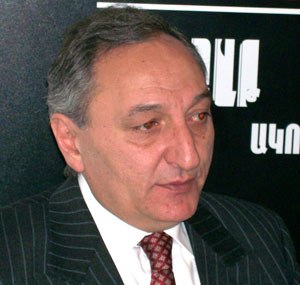


ArmInfo. Armenia can refuse the single currency in the Eurasian Economic Union (EEU) if it wants, Armenian economist Vardan Bostanjyan said on September 3, when commenting on Russian President Vladimir Putin's instructions to the Central Bank and the Russian Government about the expediency of creation of a currency union in the EEU.
The economist said that a single currency will make the transactions on the Eurasian market more transparent and will strengthen the ruble positions on the currency market if it is chosen as the single currency. "The switch to a single currency is a rather complicated process, especially given that the main capital is in USD and EUR," he said. In this light, Bostanjyan pointed out that if the Armenian authorities find it inexpedient to use the single currency, they can refuse it and keep making the transactions in the national currency. "A political decision should be taken," he said.
On August 31, Vladimir Putin submitted a draft Federal Law on Ratification of the Agreement on Cooperation in Organising an Integrated Currency Market in the CIS for consideration of the State Duma. The Russian President's website reports that the agreement contemplates direct access by the parties' resident banks to each other's domestic foreign exchange currency markets to conduct interbank FX transactions on terms more favourable than those offered to domestic commercial banks. This would help expand the use of national currencies in foreign trade payments and financial services and thus create preconditions for greater liquidity of domestic currency markets.
AmRating Armenian Rating Agency analysts say that the single currency for the countries of the EEU may be introduced not earlier than in 2020. They think introduction of the single currency conditionally called altyn will become possible only after successful integration of the EEU counties and under compulsory condition of full liquidation of the so-called waivers. The EEU countries are seriously concerned over the big countries' measures to protect the internal market through numerous waivers from the customs regime as well as over existence of numerous technical regulations impeding development of the common market. In addition, before creating a common monetary market, it is necessary to take measures to unify the taxation and monetary policies and bring the countries to a similar macroeconomic environment.